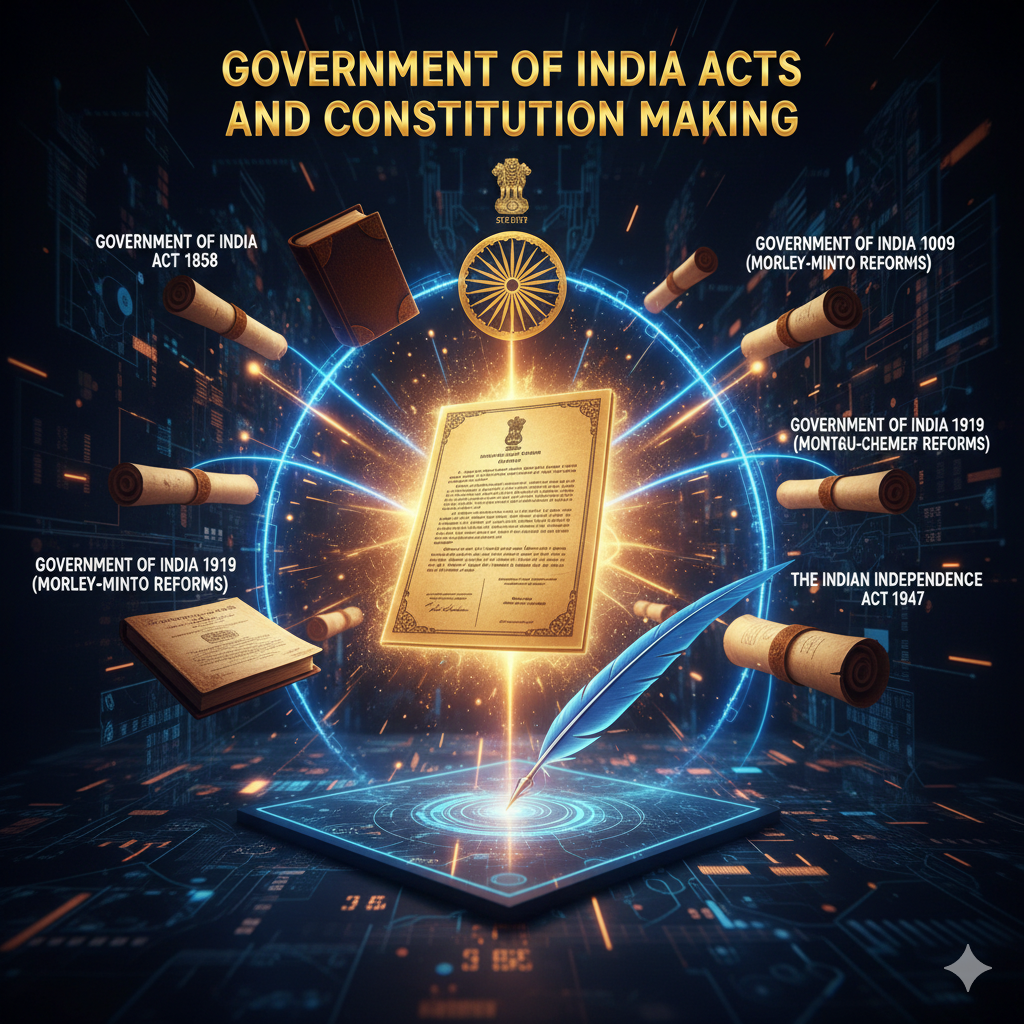Introduction
Legislation forms the backbone of a nation’s governance. In India, as society evolves, the government continuously brings new Acts or amends existing ones to meet changing economic, technological, and social challenges. In recent years, key areas like Income Tax laws, Data Privacy, and Electoral Reforms have seen significant changes. These reforms not only impact governance but also influence citizens, industries, and democratic institutions.
This article explores important new legislations and amendments, focusing on their background, objectives, provisions, impacts, and challenges, especially in the domains of taxation, data protection, and electoral governance.
Part I: Income Tax Acts and Amendments
Background
India’s taxation system is one of the largest in the world, with direct taxes like income tax being a major source of revenue. Over the years, amendments have been made to simplify compliance, plug loopholes, and ensure greater tax fairness.
Key Amendments in Income Tax in Recent Years
- Faceless Assessment Scheme (2020 onwards)
- Objective: To reduce corruption and bring transparency.
- Provisions: Tax scrutiny and assessment are done digitally without physical interaction.
- Impact: Reduces harassment of taxpayers and increases accountability.
- Changes in Tax Slabs (2020 Budget)
- A new tax regime was introduced with lower tax rates but without exemptions.
- Gave taxpayers the choice between the old system (with deductions) and the new simplified system.
- Amendments Related to TDS and TCS
- Tax Deducted at Source (TDS) and Tax Collected at Source (TCS) provisions have been expanded, particularly for foreign remittances and e-commerce transactions.
- This ensures better tracking of financial flows and reduces tax evasion.
- Corporate Tax Reforms (2019)
- Corporate tax rate for new manufacturing firms was reduced to 15%.
- Aimed at boosting India’s competitiveness and attracting foreign investments.
- Introduction of Vivad se Vishwas Scheme (2020)
- A dispute resolution scheme to settle pending tax litigations.
- Helped reduce the burden on courts and improved tax compliance.
Impact on Economy and Citizens
- Encourages voluntary tax compliance.
- Simplifies procedures for businesses and individuals.
- Attracts global investment by making India’s tax system more competitive.
Part II: Data Privacy and Protection Acts
Background
With the rise of the digital economy, protecting personal data has become crucial. India, with over 800 million internet users, faced growing concerns about misuse of data by tech companies, social media platforms, and even state agencies.
The Digital Personal Data Protection Act, 2023
This is one of the most significant legislations in recent years.
- Objectives:
- Protect personal data of individuals.
- Establish a framework for data processing by companies and the government.
- Balance data privacy with innovation and economic growth.
- Key Provisions:
- Rights of Individuals – Users have the right to access, correct, and erase their data.
- Consent-Based Data Processing – Organizations must seek consent before collecting or processing personal data.
- Data Protection Board of India – Established as a regulatory authority for monitoring compliance.
- Cross-Border Data Transfer – Allows data transfer to certain countries approved by the government.
- Penalties – Heavy fines for misuse or unauthorized sharing of personal data (up to ₹250 crore).
- Rights of Individuals – Users have the right to access, correct, and erase their data.
- Impact:
- Empowers individuals to control their digital footprint.
- Brings India closer to global data privacy standards like the EU’s GDPR.
- Builds trust in digital services and e-commerce.
Challenges Ahead
- Balancing privacy with national security and surveillance needs.
- Ensuring smaller businesses can comply without heavy financial burdens.
- Need for awareness among citizens regarding their data rights.
Part III: Electoral Reforms and Related Acts
Background
Elections form the foundation of democracy, and in India, free and fair elections are critical. However, challenges like electoral funding, misuse of technology, and transparency issues necessitate continuous reforms.
Key Legislative Developments
- Electoral Bonds Scheme (Amendments)
- Introduced as a method of political funding through banking channels.
- Aim was to bring transparency, but critics argue it reduces accountability since donor identities remain confidential.
- Linking Aadhaar with Voter ID (Election Laws Amendment Act, 2021)
- Enables voluntary linking of Aadhaar with Voter ID to reduce duplication.
- Objective: Clean up electoral rolls and prevent bogus voting.
- Amendments to Representation of People Act
- Expanded the timeline for registering as a voter (allowing multiple cut-off dates).
- Improves inclusivity, especially for young voters.
- Use of Technology in Elections
- Greater emphasis on EVMs (Electronic Voting Machines) with VVPAT (Voter Verified Paper Audit Trail).
- Legislative support ensures credibility and trust in election outcomes.
- Women’s Reservation Bill (Nari Shakti Vandan Adhiniyam, 2023)
- Reserves 33% seats in the Lok Sabha and State Assemblies for women.
- A historic step toward gender equality in political representation.
Impact of Electoral Reforms
- Improves the accuracy of voter rolls.
- Enhances citizen participation.
- Strengthens democracy by increasing inclusivity and fairness.
- However, debates continue regarding transparency in political funding.
Broader Implications of These Acts
For Citizens
- Greater tax compliance burden, but also simplified digital processes.
- Enhanced protection of personal data rights.
- More transparency and fairness in elections.
For Businesses
- Corporate tax relief makes India attractive for investors.
- Data protection laws impose stricter compliance requirements on IT companies.
- Electoral reforms indirectly influence business-political funding dynamics.
For Governance
- Enhances accountability of institutions.
- Aligns India with international best practices in taxation, privacy, and democracy.
- Provides legal frameworks to meet the needs of a rapidly modernizing economy.
Challenges in Implementation
- Complexity of tax compliance for small taxpayers.
- Balancing innovation with strict privacy norms.
- Political resistance to reforms that reduce opaque funding.
- Administrative hurdles in linking Aadhaar with voter ID across a diverse population.
Conclusion
Legislation is a continuous process in a democracy like India. The Income Tax reforms, Data Privacy laws, and Electoral reforms represent India’s efforts to modernize governance, empower citizens, and strengthen institutions. While challenges exist, these reforms are crucial for ensuring economic growth, digital trust, and democratic vibrancy in the 21st century.
India’s legislative journey reflects its adaptation to a fast-changing world—where economic competitiveness, data security, and electoral integrity are interlinked. For students, policymakers, and citizens, understanding these Acts and Amendments is essential to appreciate how laws shape the future of governance and society.




